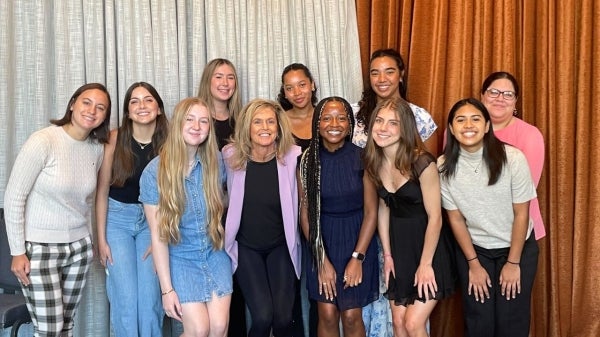New climate video series centers on diverse youth voices

A composite screenshot from Planet Forward Episode 1: Rohan Agrawal (left) and Alexandria Villaseñor.
Climate change may feel formidable, and people worldwide are already experiencing its effects, but our future is not yet decided. Catastrophe is not inevitable.
Countless people around the world, recognizing the urgency of this moment, are taking climate action in a way that draws from their personal experiences and passions. A new PBS video series in collaboration with the Arizona State University Julie Ann Wrigley Global Futures Laboratory is telling the stories of some of these courageous, innovative and captivating people.
The monthly series is called “Planet Forward” and is hosted by Frank Sesno, a CNN veteran and director of the Planet Forward project at George Washington University’s School of Media and Public Affairs. This new series is part of the “Peril and Promise” initiative from WNET, the PBS affiliate in New York, exploring human stories affected by climate change. Each episode of “Planet Forward” will engage a young storyteller.
“We are excited to be partnering with Frank Sesno, Planet Forward and PBS on this series,” said Steven Beschloss, narratives lead of the Global Futures Laboratory and director of the Narrative Storytelling Initiative. “Solutions to the climate crisis that can lead to positive futures depend on smart ideas, motivated thinkers and doers, and powerful storytelling that can expand the population committed to making change.”
In the first episode, “Can youth be the bipartisan climate communicator?,” Alexandria Villaseñor, founder of Earth Uprising, describes her journey as a climate activist and gives advice to other young people wanting to get involved.
“Youth, I believe, are the intergenerational bridge for climate change awareness, and I think that we have to be because of how urgent this is,” Villaseñor said. “Climate change will affect our generation the most, so we have the most at stake right now.”
Sesno also interviews young climate tech innovator Rohan Agrawal, who is taking a technological and scientific approach to climate solutions, while understanding the importance of storytelling to create change.
“I believe it’s not about blatantly reporting the data anymore, but wrapping that data in a narrative, and painting a picture that inspires young people like myself to take action,” Agrawal said.
Upcoming episodes include stories of people responding to issues of extreme heat, climate-fueled wildfires and climate justice. Full episodes can be watched online.
More Law, journalism and politics

Cronkite School launches Women Leaders in Sports Media live-learn program
Women in a new sports media program at Arizona State University got a solid game plan from a sports veteran at an Aug. 20 welcome…

ASU center to host the Pursuits of Education and Excellence Symposium
The Center for the Study of Race and Democracy (CSRD) at Arizona State University is introducing the Pursuits of Education and…
ASU journalism students dominate NATAS Student Production Award nominations
Students at Arizona State University’s Walter Cronkite School of Journalism and Mass Communication dominated the nominations…